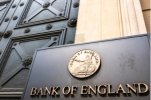- Date
- 22 December 2021
As Omicron Cases Soar, so does the Bank of England’s Interest Rate
As Omicron Cases Soar, so does the Bank of England’s Interest Rate
By Jake Rickman |
What do you need to know this week?
The Bank of England has officially hiked interest rates for the first time since the pandemic began early last year. The rate rises from 0.10% to 0.25%.
The move has surprised analysts and investors, many of whom suspected the nation’s central bank would not depart from its previous course of action in the middle of the Omicron surge.
Other central banks, including the United States Federal Reserve and the European Central Bank, have also recently indicated they intend to raise interest rates in the next couple of months.
Why is this important for your interviews?
Interest rate hikes influence the markets because they determine how expensive it is to borrow money.
In simple terms, the interest rate determines the price a nation’s central bank charges private banks to borrow money. In turn, the banks pass this cost onto the businesses they lend to so they can fund their operations and expand.
The lower the rate, the cheaper it is to borrow money.
During the pandemic, businesses made use of the cheaper money to continue their operations (rather than slow them down because of uncertainty). In some cases, they even grew. This is in part why, as an example of the effect of interest rates, M&A deals surged during 2020 and 2021: companies could access more leverage when acquiring companies because the debt was cheaper.
Beginning in the second half of this year, economists began observing levels of inflation not seen in decades.
Though it is not settled to what extent the low rates contributed to current inflationary pressures, central bankers have long recognised that raising rates can slow inflation. This is because as the cost of borrowing gets more expensive, businesses (and people) borrow less. This translates to less money in the market. Less money means there is less upward pressure on prices. Eventually, in theory, inflation slows down.
But it’s not without risks: rate hikes place more pressure on vulnerable companies. If enough companies start to struggle, this can spiral into a recession. This is why many business owners are upset at the recent announcement.
How is this topic relevant to law firms?
Companies that have a lot of debt will have to spend more money to pay off the debt if the interest rate they pay rises. Depending on the terms of their loans and other debts, if they do not have enough money to service their debt, this can trigger “events of default”. In the worst case, these companies go bust.
Law firms with strong restructuring and insolvency groups like Kirkland & Ellis and Dechert will be called on by both struggling companies and their creditors to renegotiate the terms of their debt.
Additionally, investment funds that target distressed companies become more active in “counter-cyclical” markets, which often coincide with rate rises. These finds will also work with restructuring and insolvency teams to advise them on how best to structure their investment.
Image Credit: Willy Barton / Shutterstock.com

